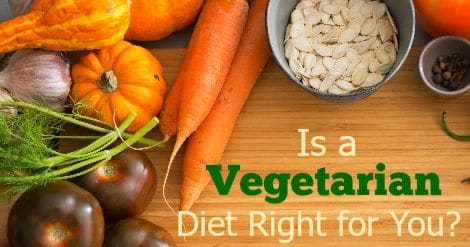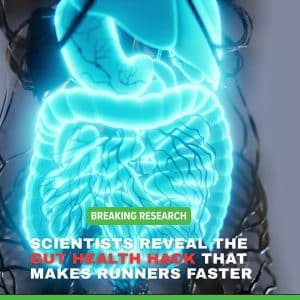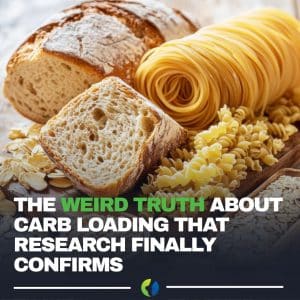Vegetarian and vegan diets are not often associated with the expected diets of high-class athletes. But believe it or not, some of the World’s best athletes are known to have diets that don’t include eating animals or animal products.
This list includes track and field star Carl Lewis, Iron Man champion Dave Scott, tennis greats Martina Navratilova and Billie Jean King, baseball slugger Prince Fielder, and even football legend Joe Namath.
Within the world of running, we are hearing of more runners adopting a vegetarian or even vegan diet. Some runners take it one step further, like Michael Arnstein, also known as the frutarian (do we need to explain what his diet consists of?).
While these are some of the more recognizable athletes, and more runners are turning to it. How realistic is it to adopt a vegetarian or vegan diets without it negatively affecting your performance? Will it be more or less expensive than a diet with meat?
There are many questions surrounding this topic, and we are going to help you decide if veganism or being a vegetarian is right for you.

Understanding the different types of vegetarian diets
Firstly, lets start from the beginning, what do the various diets involve?
There are varying levels ranging from:
- Semi-vegetarians (or flexitarians) avoid all red meat but will have small amount of fish, poultry, eggs and dairy products
- Pesco-vegetarians will eat fish, dairy and eggs
- Lacto-ovo vegetarians do not eat any meat but will eat eggs and dairy
- Ovo-vegetarians do not eat meat or dairy but will eat eggs
- Vegans eat no animal products whatsoever
Reasons that individuals adopt vegetarian diets are just as varied as the types of vegetarian diets.
Most people go vegetarian for health reasons; either to lose weight or to reduce certain health risks. Others do it for the environment; high levels of meat production have been linked air and water pollution, production of harmful greenhouse gases that could be associated with climate change, and depletion of natural resources. Finally there are those that are ethically opposed to consuming living creatures and those that just do not like the taste of animal products.
Whatever the reason, it is apparent that vegetarian diets are popular throughout all populations, athletes included. The questions for athletes are:
1) Are there any performance benefits to adopting a vegetarian or vegan diet?
2) Are there any performance pitfalls associated with a vegetarian or vegan diet?
Although there is not much research on athletes and vegetarian diets, previous research on the general population is pretty conclusive that vegetarian diets are associated with a lower risk for heart disease, hypertension, diabetes, and certain cancers
This is likely because vegetarian diets tend do be higher in fiber, contain less saturated fat and cholesterol, and include more heart-healthy unsaturated fats. Furthermore, vegetarians tend to consume more fruits and vegetables, which contribute to higher levels of health-promoting antioxidants and phytonutrients.
Performance and health advantages of vegetarianism
Now:
There are many reasons why you might choose not to eat animal products, but better running performance shouldn’t be one of them.
That being said, if you take the time to ensure that your diet draws on a wide range of nutritious plant sources, avoiding meat and animal products doesn’t have to hinder your running either.
The caveat here is that the diet must be healthy.
It is likely that many athletes feel better on a vegan diet simply because they had a poor diet (not nutrient-dense) to begin with. It is still very much possible to have a vegetarian or vegan diet full of junk foods like chips, cookies, candy, soft drinks, etc. without including any animal products.
A vegan diet of this composition would not be likely to have any health or performance benefits.
Therefore a separate title has been created for diets that are high in micronutrients, vegan or not. This diet is called “nutritarian” and is based primarily on unrefined plant foods that are high in micronutrients and fiber such as fruits, vegetables, nuts, seeds, and beans.
Some researchers believe that it is by following a nutritarian-like vegan diet that athletes are most likely to achieve a performance advantage.
These diets can be associated with overall health benefits such as improved cardiovascular health, improved immune function, and a longer lifespan.
Here’s the deal:
Improvements in cardiovascular health are likely related the high-antioxidant level of plant foods.
Oxidative damage is a known contributor to coronary heart disease as well as post-exercise muscle soreness and delayed recovery in athletes. Increased intake of antioxidant-rich foods like fruits, vegetables, nuts, and seeds can help reverse oxidative stress and provide cardiovascular protection.
It get’s better:
Brightly colored foods and foods high in micronutrients in addition to foods containing omega-3 fatty acids can improve immune function in athletes, which is a serious concern. Hard training suppresses the immune system and frequent illnesses can severely impact training quality and volume.
Plant-based omega-3 fatty acids can be found in seeds like flax, sesame, sunflower, pumpkin, hemp, and chia.
[bctt tweet=”There are actually many advantages to a vegan or vegetarian diet as a runner. Check it out here”]
Possible pitfalls of a vegetarian or vegan diet
Now:
As with any diet, you must always be aware not just of what your foods provide you, but also what your foods may be lacking. Special concern must be paid to protein and a number of micronutrients that are often abundant in animal products, but are likely low on a vegetarian or vegan diet.
Protein intake and bioavailability
The first potential concern about vegetarian and vegan diets is whether they are capable of meeting the protein needs of an endurance athlete, since they lack the most common source of protein (meat) in a standard Western diet.
- Moreover, protein in plant foods is less “bioavailable” than it is in animal products.
- Furthermore, vegan diets exclude eggs and dairy products, which are some of the easiest ways to add protein to the diet.
- On top of all this, athletes already have higher protein needs than the general population. The International Society of Sports Nutrition recommends that athletes consume between 1.2-1.7 grams of protein per kilogram of body weight daily.
Here’s the deal:
A 2006 review article by Angela Venderley and Wayne Campbell argues that a properly-designed meat-free and even animal product-free diet can readily supply carbs, protein, and fat in the right proportions to fuel a runner in heavy training.
Other studies agree, emphasizing the availability of non-animal protein sources like soybeans, nuts, and chickpeas. But do vegetarians and vegans actually get enough protein in the real world?
A paper by Susan Barr and Candice Rideout at the University of British Columbia cites research showing that vegetarian and vegans as a group do tend to have a lower protein intake than people following a standard diet, but even this lowered level of protein is sufficient to meet the needs of an athlete and is well above the recommended daily intake for protein.
The only possible exception that Barr and Rideout mention is an athlete with a strict vegan diet who is also limiting his or her overall caloric intake to lose weight—in this case, the athlete’s protein intake might be too low.
What’s the bottom line?
Vegan and vegetarian athletes should focus on consuming multiple sources of protein throughout the day in order to get all of the essential amino acids. The following are some good sources of plant-based protein:
- Tofu and tempeh
- Soy milk and soy yogurt
- Beans and lentils
- Whole wheat pasta, oats, wild rice, quinoa, and sprouted grain bread
- Seeds: sesame, sunflower, pumpkin, hemp
- Nuts: almonds, cashews, pine nuts
- Broccoli rabe, bok choy, spinach, swiss chard, asparagus, kale
Overall calorie intake
Another concern is overall calorie intake. Plant-based foods are often not as energy-dense as animal products so you need to get used to eating larger amounts to get the same number of calories.
Getting a sufficient amount of calories decreases the amount of dietary and muscle protein that needs to be broken down for energy. This also requires that you are obtaining sufficient carbohydrate from foods in addition to adequate dietary protein and fat.
If you chose to be a vegetarian or a vegan, you’ll have to spend more time researching and planning out your diet to make sure you’re getting the right nutrients and eating enough calories.
For its part, the American Dietetic Association’s position stand on vegetarian diets also emphasizes well-planned, well-rounded diets that draw on a wide range of plant sources.
Micronutrient intake
Though vegetarian and vegan diets appear to be suitable for endurance athletes in the macronutrient department (carbs, fats, protein), the situation gets a bit murkier when we look at the levels of specific vitamins and minerals.
According to Venderley and Campbell, poorly-designed vegetarian and vegan diets can supply insufficient amounts of omega-3 fatty acids, iron, zinc, iodine, calcium, vitamin D, and vitamin B12., as plant-based foods tend to be lacking in these micronutrients.
However:
David Nieman at Appalachian State University argued in a 1999 paper that, although some studies have found that vegetarians and vegans have lower intake levels of these nutrients in their diet, there is no evidence for impaired athletic performance or any actual widespread nutritional deficiencies.
Additionally, he argues that plant-based sources for nearly all of these nutrients can be included in a comprehensive, well-planned vegetarian or vegan diet. Barr and Rideout, however, emphasize that strict vegetarian and vegan athletes have a higher frequency of iron-deficiency anemia and, in women, amenorrhea, both of which have negative performance implications.
As discussed earlier, omega-3s are important for cardiovascular and immune function.
Iron and B12 are important for the production of red blood cells, which help transport oxygen to working muscles. Furthermore, vitamin B12 is essentially for proper neurological function and depleted levels have been associated with increased cardiovascular risk.
Vitamin B12 is found mostly in animal products after bacteria produce it in their gut. Plant foods only contain B12 if they are fortified with it or if it is eaten in the form of nutritional yeast. It is highly recommended that vegans supplement with vitamin B12.
Zinc is primarily important for immune function. While zinc is abundant in animal products, it is not readily absorbed from most plant foods do to the presence of phytates, with inhibit the absorption of zinc and iron. For this reason a multi-vitamin may be a suitable choice for vegans.
Vitamin D is important for bone health and can be synthesized through sunlight and obtained from the diet. However, recent research suggests that up to half of the US population may be deficient in vitamin D.
Vitamin D deficiency has been linked with increased risk for cardiovascular disease, diabetes, depression, and a number of cancers. Vitamin D is almost exclusively found in animal products, but can also be found in fortified foods like orange juice and cereals.
What’s the bottom line?
Vegetarian and vegan runners might need to supplement their diet with iron and vitamin B12 to stay in top shape, and they should pay extra attention to the amount of zinc, calcium, and vitamin D in the foods they eat.
Conclusion
Although the potential pitfalls of a vegan diet may seem too intimidating, it is very possible to live and perform well on a vegan diet. It takes careful planning and close attention to the important elements discussed above.
- It is highly recommended, especially if food intake and calories are restricted, to supplement with vitamin B12 and a multi-vitamin. Emphasize high-quality plant proteins and an array of colors for fruits and vegetables.
- Start slowly by reducing your intake of meat or animal products to just one meal per day. Be sure to include a protein-rich food at every meal and snack, and look for foods fortified with essential micronutrients like calcium, vitamin D, iron, and vitamin B12.
- And finally, remember that a vegan cookie is still a cookie! A vegan diet is only as healthy as you make it. Focus on unrefined, nutrient-rich foods and you will have the base for a great performance diet.
An interview with Matt Frazier of No Meat Athlete
We conducted an in-depth interview with vegetarian runner and man behind the scenes at NoMeatAthlete (a fantastic source for vegetarian and vegan runners), Matt Frazier.
In addition to being a vegetarian runner himself, Matt also has a great story about how he transformed himself from a 4:50 marathoner to a 3:10 Boston qualifier. And of course, becoming a vegetarian during that process was a big step.
On the show, Matt shares his story and also helps us dig deep into some of the myths and challenges of being a vegetarian runner and, most importantly, how to overcome them. In this interview, we specifically discuss:
- The challenges he faced when he first started as a vegetarian runner. Matt’s also going to share some super helpful advice for those of you who are thinking about going vegetarian – or any diet for that matter.
- Matt’s also going to discuss some of the biggest myths he had to overcome when he first started as a vegetarian athlete and what he’s since learned.
- Finally, Matt’s going to provide some helpful tips for vegetarian runners about how to get enough complete sources of protein and to fuel their caloric needs.
If you enjoyed this article, you absolutely need to check out this interview.
![]() Download the podcast version here
Download the podcast version here
Download directly to your iTunes podcast or directly to your Stitcher Radio app and take this interview on your next run
[bctt tweet=”Vegan and Vegetarian diets CAN work for runners, learn more here!”]





One Response
This is a great article! I have been going more and more meatless since the beginning of the year, and I agree, Matt Frasier and the No Meat Athlete has been a huge help! I write a (tiny) running blog and plan to write on the diet in the next week or so, and would love to link to the great information here.